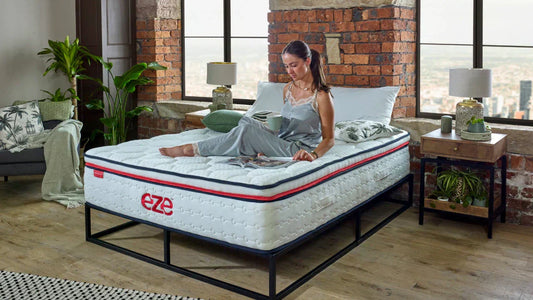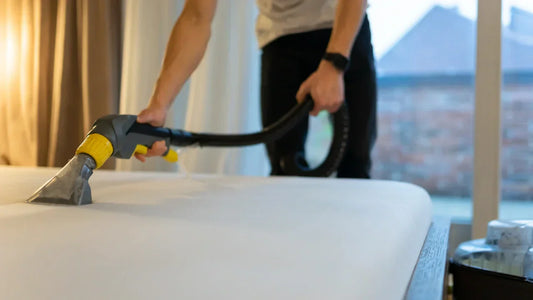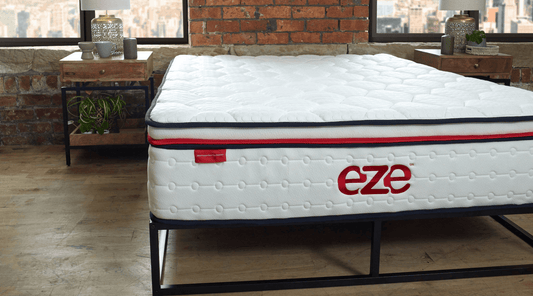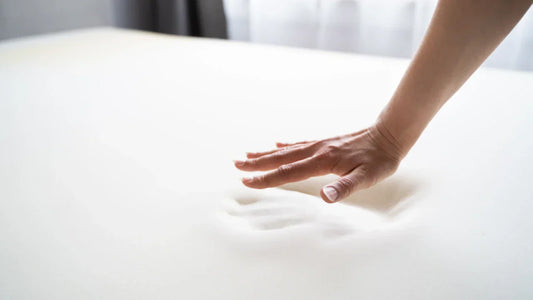If you snore, then fear not. You are certainly not alone! According to research, 41.5% of the UK adult population snore, meaning that there are approximately 15 million snorers. That’s a lot of night-time noise!
Snoring occurs as a result of vibrations made by the soft palate and other tissues inside your mouth, nose and throat. The vibration is caused by a partial blockage of the upper airway, which could be swollen tissue, congestion or a deformity of some kind.
If you or your partner snores, it can disrupt a restful night’s sleep. Rather than leaving it untreated, it’s important to look at ways to improve the condition. A good first step would be to visit your GP or health professional to rule out any medical complications or nasal abnormalities. Following that, there are plenty of natural methods to control snoring. Here we look at 5 of the most common ways.
Your Lifestyle Habits

Smoking, drinking alcohol and being overweight are all factors that affect snoring. By addressing a healthier lifestyle, you are not only reducing your chances of snoring, but are also helping to improve your overall wellbeing.
Try to cut out processed foods and anything with a high saturated fat content – replacing them with plenty of fruit, veg and wholegrains. Also ensure you get plenty of exercise throughout the week. The NHS recommends at least 150 minutes of moderate intensity activity each week, as well as breaking up long periods of not moving with some activity.
The Way You Sleep

Sleeping on your back may be one of the contributing factors that causes you to snore. Sleeping on your side could be a better alternative to ease the symptoms. It can also allow your tongue to move away from the back of your throat, which unblocks the airflow and allows it to travel in and out more easily.
Elevating your upper body by a few inches when you sleep could also help to take pressure off your airways and keep it open throughout the night. Try propping the upper part of your mattress up with a couple of blocks or books underneath it and see how you get on. Remember, it needs to be your whole upper body which is raised and not just your head, as this could have the opposite effect.
Your Bed and Mattress

The mattress and base you choose for your bed could make a big difference to your sleep quality. The best mattress for snoring is one which supports your spine and keeps your neck aligned. Mattresses that are designed for specific sleep positions, such as for side sleeping, are useful as they provide just the right amount of support, targeted to where you need it most through the night.
Treating Allergies

Allergies and allergic reactions can reduce airflow through your nose, which can cause you to breathe through your mouth, and snore. Addressing your allergies can help to stop this.
Make sure you are sleeping on a hypoallergenic mattress or have a hypoallergenic mattress protector as a first priority. Sleeping with the windows closed at night during hay fever season can help to reduce the number of allergens and pollen entering your room as you sleep. There are also many natural hay fever remedies available, such as saline nasal sprays.
Nasal Strips and Dilators

If you have put the above methods into practice and still find that you are snoring, then consider nasal strips. These are placed on the bridge of your nose to help increase the space in your nasal passage giving you more room to breathe. There are many types of nasal strip available, so it’s always a good idea to research the best types for you.
Alternatively, a nasal dilator can be used to hold open and dilate the nasal airways, making it more likely that you will sleep with your mouth closed through the night. These dilators sit all the way inside your nose and are helpful with clearing nasal congestion.
It’s likely that, if you snore, you will need to try a range of solutions before you find a cure that works for you. The results may not be instant, but by making some small, consistent adjustments to your lifestyle and sleep environment, you could be noise-free during the night in no time.









